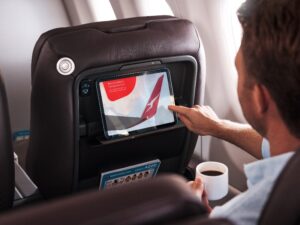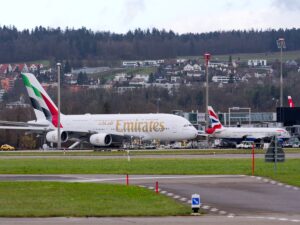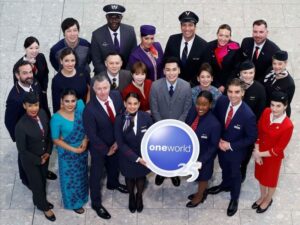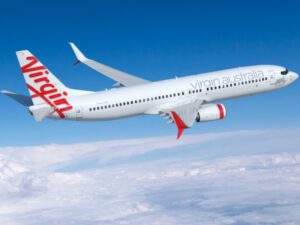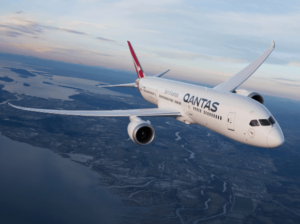
There has long been a joke that frequent flyer programs make more money for airlines than flying planes. In the current climate, it couldn’t be more true!
Last week Qantas revealed a $2.7 billion statutory loss for the 2019-20 financial year. After a profitable first half to the financial year, the COVID-19 pandemic resulted in a disastrous second half.
Across the whole financial year, Qantas Domestic’s profits fell 78% to $173 million. Qantas’ international business suffered an 83% reduction in profit, with Qantas International posting a $56 million profit. And Jetstar went from a $400 million profit in 2018-19 to a $26 million loss in the last financial year.
These amounts don’t take into account the significant accounting losses incurred through writing down the value of the airline’s A380s and other aircraft.
By comparison, Qantas Loyalty made a $341 million profit during the same 12-month period. That’s just a 9.3% drop from the previous financial year, which Qantas attributes to a reduction in credit card spend in Australia (around 1 in 3 Australian credit cards earns Qantas points) and less engagement with travel-related products during the lockdown.
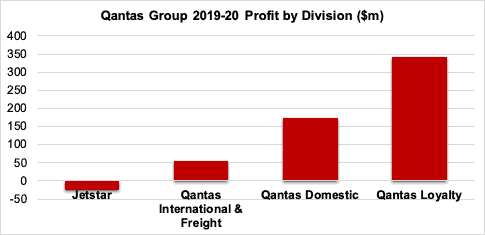
Meanwhile, Qantas Frequent Flyer recruited 500,000 new members over the past year. And the loyalty business’s operating margin has actually improved from 22.7% to 27.9%, due to lower costs.
Qantas described the $341 million profit generated by its frequent flyer program as the “largest single positive contribution” to the Qantas Group. The only other recent bright spots in Qantas’ portfolio have been the freight business – boosted by an online shopping boom – and mining charters.
Intriguingly, Qantas also boasts that Qantas Frequent Flyer member satisfaction was at a record high between April and June 2020 – right when most people were unable to travel. This is probably largely due to Qantas extending everyone’s status for a year. But Qantas Frequent Flyer has done a good job overall with keeping members engaged throughout the travel shutdown. There have been more opportunities to earn points and status credits on the ground, and Qantas also introduced its new Points Club just as Australia’s international border closed in March 2020.
How Qantas Frequent Flyer makes money
Frequent flyer programs initially launched as a marketing tool for the airline, and a way to keep customers loyal. They have now evolved into highly profitable coalition programs that generate income by selling points to third parties.
Around 60% of all Qantas Frequent Flyer points issued are sold to third parties. These include program partners like Woolworths, BP and of course the major banks, which all offer Qantas points with a range of their credit cards. These program partners all pay Qantas to offer attractive Qantas points to their customers.
Qantas Frequent Flyer places a nominal internal value (which is not made public) on the cost of each point. When selling points to third parties, it adds a profit margin so that Qantas will make more from selling the points than it later has to spend in providing the redemption to the customer.
This is the main way that frequent programs make money, but it’s not the only way. Airlines also collect interest on the value of unclaimed points, and there will also be a small percentage of points that expire without being redeemed at all. This is known in the industry as “breakage”. Airlines love breakage because it’s pure profit – but it comes at the expense of dissatisfied and disengaged members.
The Qantas 2017 Investor Day presentation contains a great diagram that demonstrates how this works:
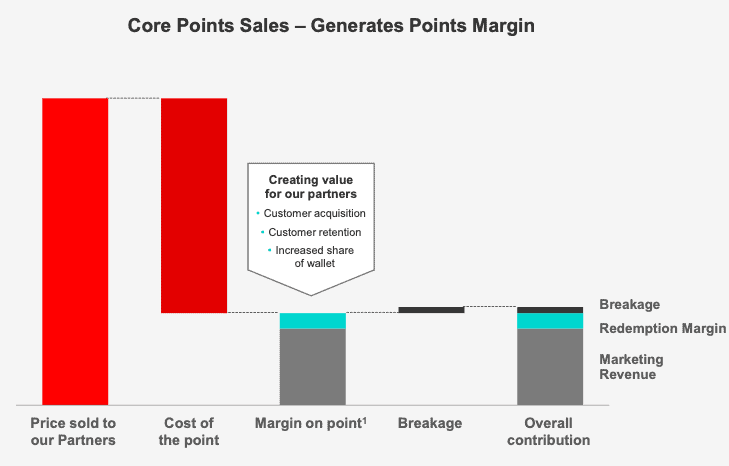
Airlines need frequent flyer programs, but the opposite is also true
Leveraging the Qantas Frequent Flyer and Qantas Business Rewards loyalty programs, Qantas has diversified into a range of non-flying businesses such as Qantas Money, Qantas Wine, Qantas Insurance & Qantas Hotels. With international flying off the cards until at least next year, and domestic travel still only at 20% of pre-pandemic levels, Qantas will be relying on the steady income generated by these loyalty businesses to keep the airline afloat over the coming period.
But it’s a codependent relationship. A frequent flyer program is only as attractive to members as the rewards on offer. Without an opportunity to redeem points for things like reward flights and upgrades, members will be less engaged and the program will be less effective at influencing spending decisions – which is the whole point of businesses paying to provide Qantas points to their customers. Without an airline, a frequent flyer program is just a shadow of itself.
When Virgin Australia releases its financial results, it will be interesting to see how Velocity Frequent Flyer was affected by the airline going into voluntary administration and the suspension of redemptions. It almost certainly won’t be in a position as strong as Qantas Frequent Flyer at the moment.
There have been cases where frequent flyer programs have outlived airlines, but it usually ends badly. When Airberlin went bankrupt in 2017, for example, its Topbonus frequent flyer program continued operating for several months afterwards. But members lost confidence in the program and the points were majorly devalued to the point of almost being worthless.
Qantas will need to do the right thing by frequent flyers
Either way, last week’s financial results prove just how important a strong frequent flyer program is to airlines like Qantas – especially at a time of severely reduced flying activity.
Qantas needs its loyal frequent flyers to stick with the airline, and to keep earning points on the ground through credit cards and program partners. It’s literally a matter of survival, which is why Qantas will be doing everything it can to keep its frequent flyers happy over the coming months and years. Even during this time of financial hardship, this is why it’s unlikely that Qantas will majorly devalue its frequent flyer program.
In fact, with all airlines currently in the same boat, many others have recently made genuine improvements to their frequent flyer programs. Qatar Airways and Etihad Airways recently made it harder for miles to expire, some airlines have removed carrier charges, and Virgin Atlantic has just introduced the ability to earn tier points (equivalent to status credits) on award flights – just to give a few examples. That should give frequent flyers a bit of confidence.
Read more: Qantas 2019-20 Financial Results a Mixed Bag


